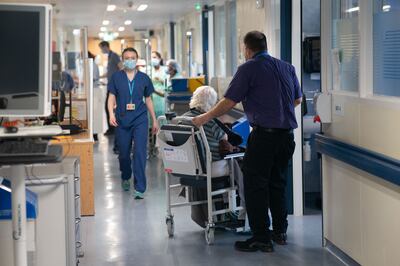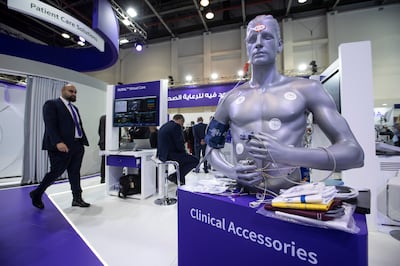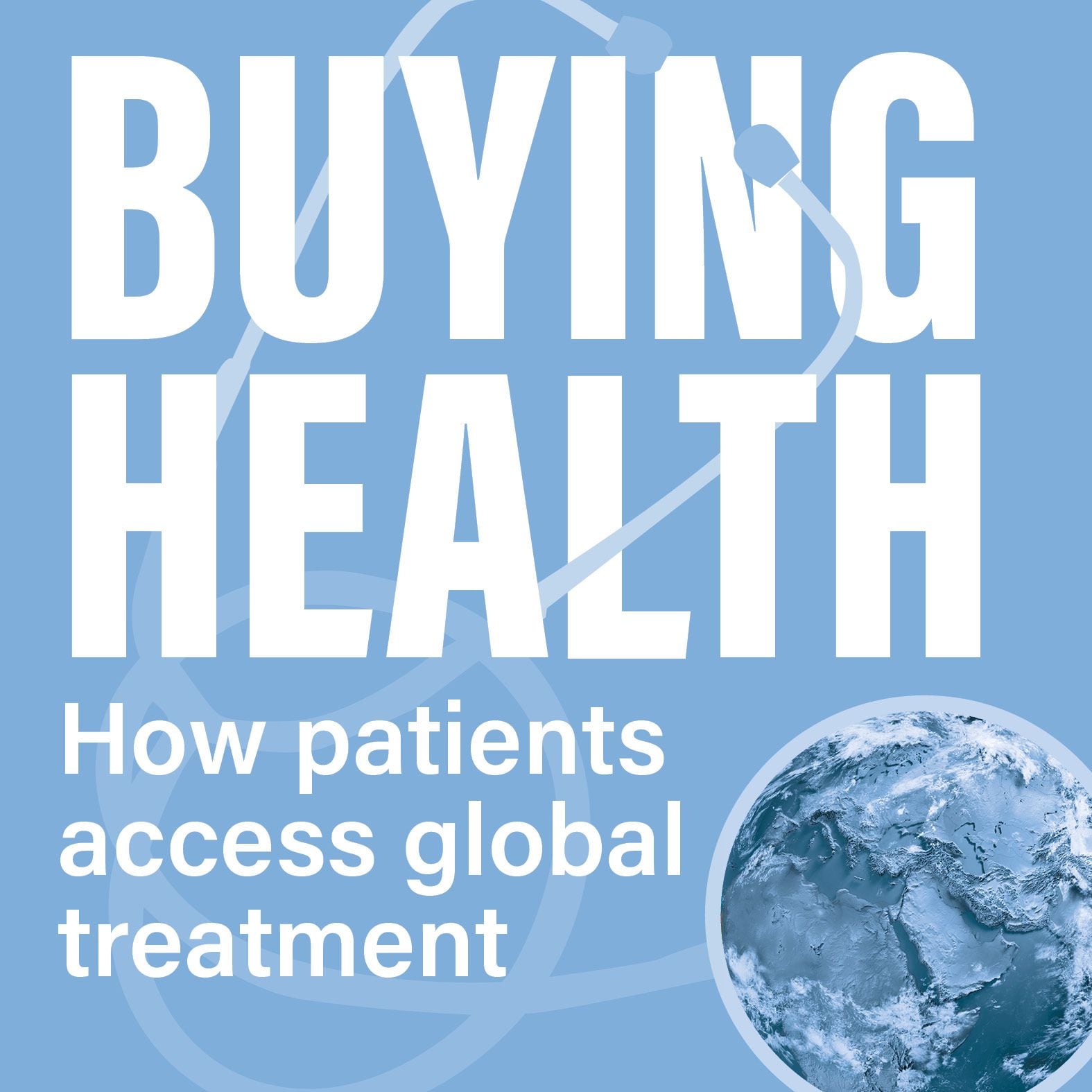Arab Health 2024 opens with a twist as the booming home market triggers growing interest in investing in the global healthcare sector, including the state-dominated UK NHS, which will be showcased at this week's event.
While domestic healthcare markets are rapidly developing within Gulf Co-operation Council countries, cash-rich investment funds are looking to life sciences, pharmaceutical and healthcare assets in the UK, the US and Europe.
Current Health Expenditure (CHE) in the GCC is projected to reach $135.5 billion in 2027, an increase of 5.4 per cent from 2022, according to Aspen Capital.
Jonathan Evans, director at the Association of British HealthTech Industries, noted the significant investments coming from GCC countries into Britain.
“In UK HealthTech alone, there are in the region of 4,500 companies. Add to that the thousands of pharmaceutical businesses and ancillary healthcare companies, and you have a huge ecosystem that will be looking for investment, so I would imagine we will see plenty more deal-making in the years ahead,” he told The National.
At the same time, the growth in the number of people choosing private health care over NHS treatment has ballooned as waiting lists lengthened in the wake of the Covid pandemic.
“NHS waits, increasing media coverage around patients choosing private options and treatment restrictions have driven wider interest in private health care, and the independent sector has seen higher volumes of patients willing to pay privately year on year,” said Liz Heath in a report for the healthcare business advisory firm LaingBuisson.
“Forward projections are always difficult to make, but based on the recent growth trajectory, all indicators are that self-pay growth will continue.”
Mr Evans feels the UK government has taken some encouraging steps to enable foreign investment to find a home in Britain's life sciences and healthcare sectors.

“The direction of travel is therefore very positive, and the opportunities are clear,” he said.
“The UK has a very strong science base, and is a genuine world leader within research, but where we could see improvements in terms of support is through the help that is available to scale these brilliant scientific ideas to better equip UK companies for growth.”
Gateway connecting East and West
This spectacular growth in health care in the GCC is mainly centred in the UAE and Saudi Arabia, with the two countries expected to make up almost 80 per cent of CHE in the region by 2027.
“The GCC region continues to stand out as a pivotal hub for the pharmaceutical and healthcare sectors in the Middle East, especially over the next decade,” Mohamed Abu Shawish, cluster general manager for the GCC at the Japanese drug maker Kyowa Kirin Pharma, told The National.
“Furthermore, the GCC’s strategic geographic location offers a gateway to connect East and West, making it an ideal hub for global companies.”
The Covid pandemic acted as the catalyst for the rapid expansion of the healthcare sector in the GCC region, sparking strong growth from automation and data-driven precision medicine to government reforms.

In a $1.2 billion deal, PureHealth bought Circle Health, a group that operates 53 private hospitals in the UK.
The PureHealth deal really illustrated the ambitions held by many healthcare companies and investment funds across the GCC.
“This acquisition is more than an expansion; it’s a significant stride towards establishing PureHealth as a global healthcare platform,” managing director of PureHealth Farhan Malik said at the time.
“This move aligns with our vision of pioneering a healthier future for all and underscores our commitment to elevating the global position of Abu Dhabi in the healthcare sector and revolutionising healthcare services globally.”
'Huge ecosystem'

The opportunities for investment into the UK healthcare sector often happen at the “edges” of Britain's NHS, said Mr Evans.
Former British political leaders Tony Blair and William Hague last week issued a joint call to put countries “unmatched wealth” of national health data to work to harness the global artificial intelligence revolution in health care.
“We propose establishing an NHS Data Trust, with a controlling stake owned by the NHS and additional investments from companies,” the report said.
“While strictly preserving privacy and preventing misuse, this structure would permit health data to be of massive benefit to research, public health and patient treatment.”
The report said the NHS could provide anonymised data to research entities, including biotech companies, in return for payment. This would place the UK at the frontier of global research.
Private equity groups have already bought up dozens of British healthcare companies, from eye-care clinics to diagnostics firms to ambulance fleets.

Arab Health 2024
The growth of healthcare in the GCC, as well as the burgeoning relationships being forged with life sciences, pharmaceutical and healthcare companies overseas will be illustrated at the Arab Health 2024 conference at the World Trade Centre in Dubai this week.
Almost 4,000 delegates from more than 180 countries will exchange views and ideas, make contact and do business at the event. Last year, $1.81 billion in business was done at the show.
“It provides an excellent opportunity for innovative companies, and healthcare providers, to drive investment between the GCC and the UK,” Mr Evans said.
“For us, it is all about creating that space to showcase UK healthcare expertise and quality, and how these solutions can benefit patients not just in the GCC, but around the world.”








